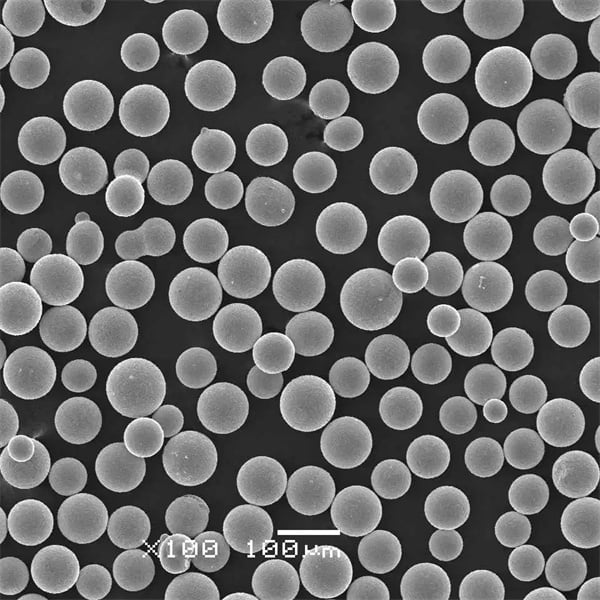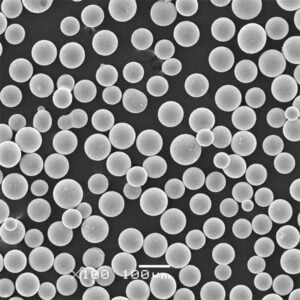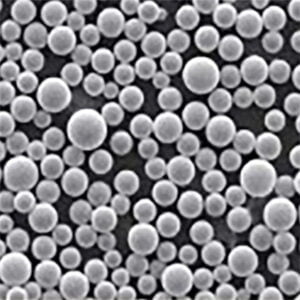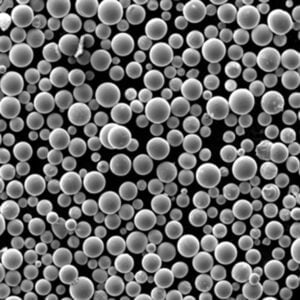Stainless Steel 410 Powder
Stainless steel is a versatile and widely used alloy known for its excellent corrosion resistance, durability, and strength. Among the various grades of stainless steel, 410 is a martensitic stainless steel that is particularly well-suited for applications requiring high strength and moderate corrosion resistance.
Low MOQ
Provide low minimum order quantity to meet different needs.
OEM & ODM
Provide customized products and design services to meet unique customer needs.
Adequate Stock
Ensure fast order processing and provide reliable and efficient service.
Customer Satisfaction
Provide high quality products with customer satisfaction at the core.
share this product
Table of Contents
Introduction to Stainless Steel 410 Powder
Stainless steel is a versatile and widely used alloy known for its excellent corrosion resistance, durability, and strength. Among the various grades of stainless steel, 410 is a martensitic stainless steel that is particularly well-suited for applications requiring high strength and moderate corrosion resistance. In powder form, Stainless Steel 410 offers unique advantages and properties that make it a valuable material for various industrial applications.
This article will provide an in-depth exploration of Stainless Steel 410 Powder, covering its composition, properties, applications, and more. We’ll delve into the technical details, while also discussing the advantages and limitations of this material, allowing you to make informed decisions for your specific needs.
Stainless Steel 410 Powder: An Overview
Before diving into the specifics, let’s start with a brief overview of Stainless Steel 410 Powder:
- Stainless Steel 410 is a martensitic stainless steel grade known for its high strength, moderate corrosion resistance, and good wear resistance.
- In powder form, Stainless Steel 410 offers unique advantages, including enhanced surface finish, improved dimensional accuracy, and the ability to produce complex shapes.
- The powder is typically produced through atomization processes, where molten metal is disintegrated into fine particles.
- Stainless Steel 410 Powder is widely used in various industries, such as automotive, aerospace, and medical, thanks to its excellent mechanical properties and corrosion resistance.
Composition and Properties of Stainless Steel 410 Powder
To better understand the capabilities of Stainless Steel 410 Powder, let’s explore its composition and properties in detail:
Composition
| Element | Composition (%) |
|---|---|
| Carbon | 0.08 – 0.15 |
| Chromium | 11.5 – 13.5 |
| Iron | Balance |
| Manganese | 1.0 max |
| Phosphorus | 0.04 max |
| Silicon | 1.0 max |
| Sulfur | 0.03 max |
The composition of Stainless Steel 410 is carefully balanced to achieve the desired properties. The chromium content, typically ranging from 11.5% to 13.5%, provides excellent corrosion resistance, while the carbon content (0.08% to 0.15%) contributes to the material’s high strength and hardness.
Properties
| Property | Value |
|---|---|
| Density | 7.7 g/cm³ |
| Melting Point | 1450°C (2642°F) |
| Tensile Strength | 620 – 860 MPa (90 – 125 ksi) |
| Yield Strength | 415 – 620 MPa (60 – 90 ksi) |
| Elongation | 15 – 25% |
| Hardness (Rockwell C) | 20 – 35 HRC |
| Corrosion Resistance | Moderate |
| Magnetic Permeability | Ferromagnetic |
Stainless Steel 410 Powder exhibits excellent mechanical properties, including high tensile strength, yield strength, and hardness. Its moderate corrosion resistance makes it suitable for various applications where mild corrosive environments are encountered.
Applications of Stainless Steel 410 Powder
The unique properties of Stainless Steel 410 Powder make it a versatile material with a wide range of industrial applications. Here are some of the key areas where this powder is commonly used:
| Application | Description |
|---|---|
| Automotive Components | Valve components, gears, shafts, bearings |
| Aerospace Parts | Fasteners, landing gear components |
| Medical Devices | Surgical instruments, implants |
| Cutting Tools | Drill bits, end mills, reamers |
| Injection Molding Components | Nozzles, screws, barrels |
| Hydraulic and Pneumatic Parts | Valves, pistons, cylinders |
The high strength and wear resistance of Stainless Steel 410 Powder make it an excellent choice for components subjected to high mechanical loads and friction. Its corrosion resistance also makes it suitable for use in environments with mild corrosive conditions.
Stainless Steel 410 Powder Specifications and Standards
When working with Stainless Steel 410 Powder, it’s essential to ensure compliance with industry standards and specifications. Here are some of the commonly used standards and specifications for this material:
Specifications
| Specification | Description |
|---|---|
| ASTM A240 | Standard for Chromium and Chromium-Nickel Stainless Steel Plate, Sheet, and Strip for Pressure Vessels and General Applications |
| ASTM A582 | Standard for Free-Machining Stainless Steel Bars |
| ASTM A696 | Standard for Stainless Steel Powder for Additive Manufacturing |
| ISO 5832-1 | Implants for surgery – Metallic materials – Part 1: Wrought stainless steel |
Grades and Sizes
Stainless Steel 410 Powder is available in various grades and particle sizes to meet specific application requirements. Common grades include:
- Powder for Additive Manufacturing (AM)
- Metal Injection Molding (MIM) grade
- Hot Isostatic Pressing (HIP) grade
Particle sizes can range from a few micrometers to hundreds of micrometers, depending on the manufacturing process and intended application.
Stainless Steel 410 Powder Suppliers and Pricing
Stainless Steel 410 Powder is produced and supplied by various manufacturers around the world. Here are some of the leading suppliers and approximate pricing:
| Supplier | Location | Approximate Price (USD/kg) |
|---|---|---|
| Carpenter Technology | United States | $35 – $50 |
| Sandvik Materials Technology | Sweden | $40 – $60 |
| Höganäs AB | Sweden | $45 – $65 |
| Kennametal Inc. | United States | $50 – $70 |
| Praxair Surface Technologies | United States | $55 – $75 |
Please note that pricing can vary based on factors such as order quantity, specific grade, particle size, and market conditions. It’s recommended to contact suppliers directly for accurate and up-to-date pricing information.
Pros and Cons of Stainless Steel 410 Powder
Like any material, Stainless Steel 410 Powder has its advantages and limitations. Understanding these can help you make an informed decision when choosing the right material for your application.
Advantages
- High strength and hardness
- Moderate corrosion resistance
- Good wear resistance
- Excellent dimensional accuracy and surface finish (when used in powder metallurgy processes)
- Ability to produce complex shapes
- Cost-effective compared to other high-strength stainless steel grades
Limitations
- Lower corrosion resistance compared to austenitic stainless steel grades
- Limited availability of certain grades and particle sizes
- Potential for high material costs, especially for specialized grades
- Potential health and safety concerns during handling and processing of fine powders
When considering Stainless Steel 410 Powder for your application, it’s essential to weigh these pros and cons carefully and ensure that the material meets your specific requirements.
Stainless Steel 410 Powder vs. Other Stainless Steel Grades
To better understand the advantages and limitations of Stainless Steel 410 Powder, let’s compare it to other commonly used stainless steel grades:
Stainless Steel 410 Powder vs. Austenitic Stainless Steel Powder
Austenitic stainless steels, such as 304 and 316, are known for their excellent corrosion resistance and formability. Compared to Stainless Steel 410 Powder, austenitic grades offer:
- Superior corrosion resistance, especially in harsh environments
- Better formability and weldability
- Lower strength and hardness
However, Stainless Steel 410 Powder has the advantage of higher strength and hardness, making it more suitable for applications requiring high mechanical loads and wear resistance.
Stainless Steel 410 Powder vs. Precipitation-Hardening Stainless Steel Powder
Precipitation-hardening stainless steels, such as 17-4 PH and 15-5 PH, are known for their excellent strength and hardness after a specialized heat treatment process. Compared to Stainless Steel 410 Powder, precipitation-hardening grades offer:
- Higher strength and hardness (after heat treatment)
- Better corrosion resistance
- More expensive and complex production process
While Stainless Steel 410 Powder may not match the strength and hardness of precipitation-hardening grades after heat treatment, it provides a more cost-effective solution for applications that do not require the highest levels of strength and corrosion resistance.
FAQs
| Question | Answer |
|---|---|
| What is the melting point of Stainless Steel 410 Powder? | The melting point of Stainless Steel 410 Powder is approximately 1450°C (2642°F). |
| How does the corrosion resistance of Stainless Steel 410 Powder compare to other stainless steel grades? | Stainless Steel 410 Powder offers moderate corrosion resistance, which is lower than austenitic stainless steel grades like 304 and 316, but higher than carbon steels. |
| Can Stainless Steel 410 Powder be used in additive manufacturing processes? | Yes, Stainless Steel 410 Powder is suitable for additive manufacturing processes such as powder bed fusion (PBF) and directed energy deposition (DED). |
| What are the typical particle sizes available for Stainless Steel 410 Powder? | Stainless Steel 410 Powder is available in various particle sizes, ranging from a few micrometers to hundreds of micrometers, depending on the manufacturing process and intended application. |
| How does the cost of Stainless Steel 410 Powder compare to other stainless steel grades? | Stainless Steel 410 Powder is generally more cost-effective than austenitic and precipitation-hardening stainless steel grades, making it a more economical choice for applications that do not require the highest levels of corrosion resistance or strength. |
Conclusion
Stainless Steel 410 Powder is a versatile and valuable material that offers a unique combination of high strength, moderate corrosion resistance, and good wear resistance. Its properties make it suitable for a wide range of industrial applications, from automotive and aerospace components to medical devices and cutting tools.
While it may not match the corrosion resistance of austenitic stainless steel grades or the strength of precipitation-hardening grades after heat treatment, Stainless Steel 410 Powder provides a cost-effective solution for applications that require a balance of mechanical properties and corrosion resistance.
By understanding the composition, properties, applications, and specifications of Stainless Steel 410 Powder, you can make informed decisions and ensure that your product or component meets the necessary requirements for performance, durability, and reliability.
Remember, when working with any material, it’s essential to follow proper safety protocols and consult with experts or suppliers for guidance on handling, processing, and best practices specific to your application.
Get Latest Price
About Met3DP
Product Category
HOT SALE
CONTACT US
Any questions? Send us message now! We’ll serve your request with a whole team after receiving your message.

Metal Powders for 3D Printing and Additive Manufacturing
COMPANY
PRODUCT
cONTACT INFO
- Qingdao City, Shandong, China
- [email protected]
- [email protected]
- +86 19116340731












